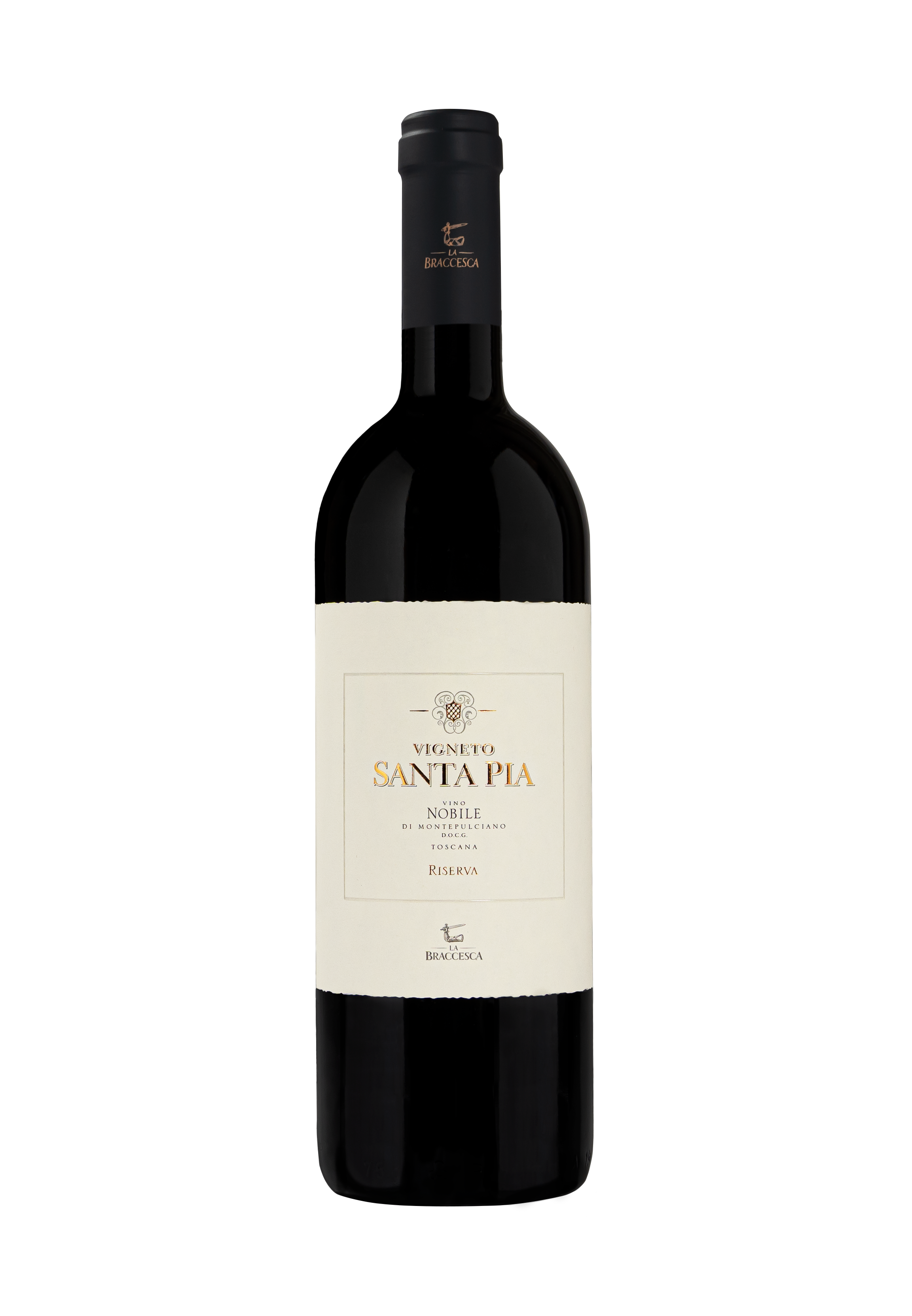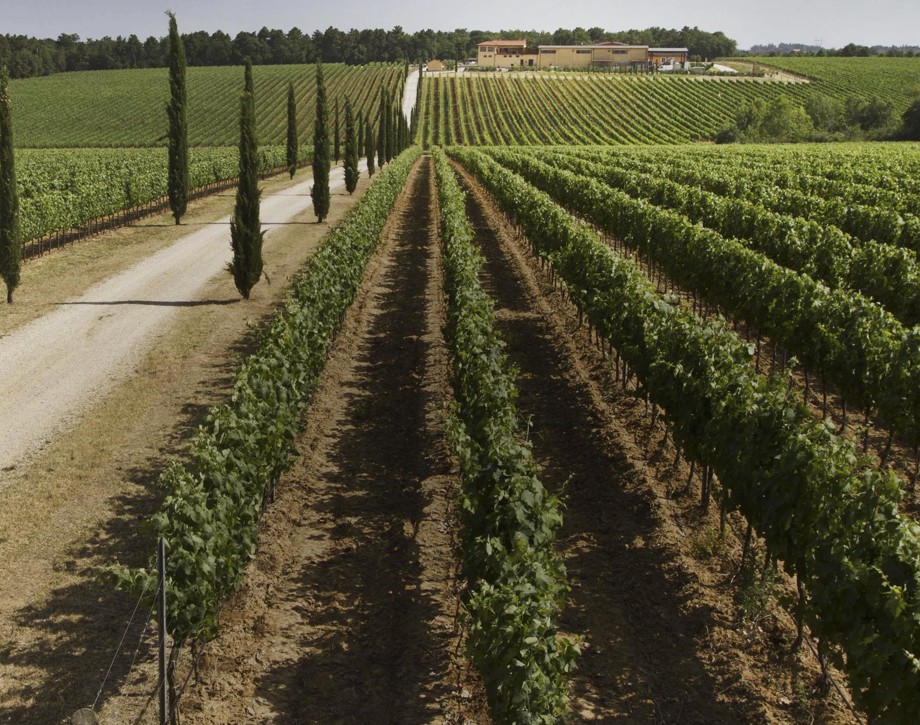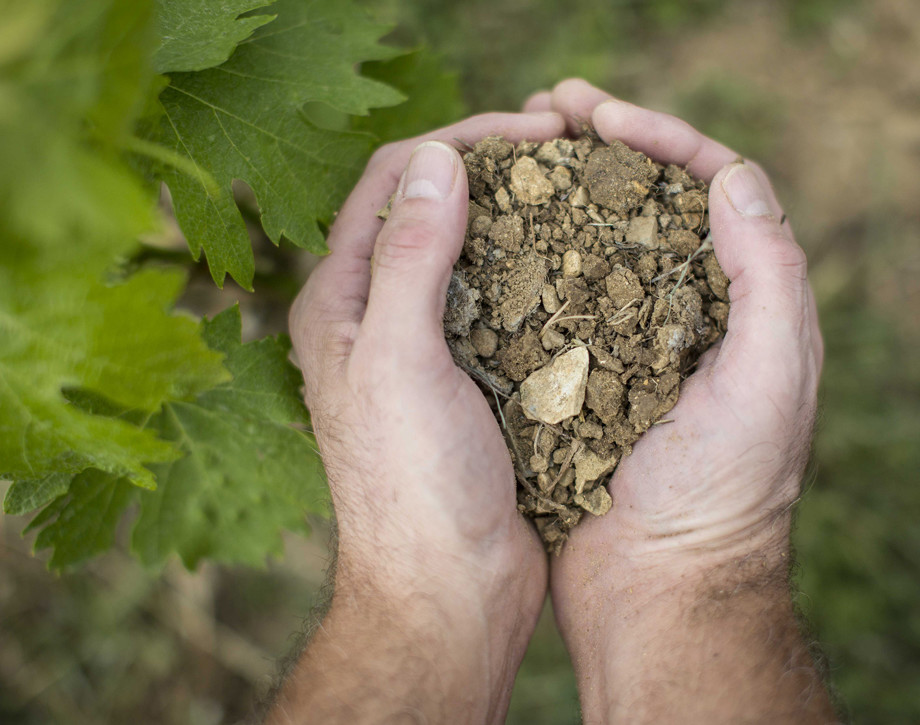Vigneto Santa Pia 2018
The Wine
Vigneto Santa Pia is crafted from a small 4 hectare-vineyard in an area called "Santa Pia", located on the ridges just below the town of Montepulciano. This particular area has sandy loamy soils rich in rocky deposits known as “scheletro” that allow the Antinori’s to create an elegant yet traditional expression of the Sangiovese grape that reflects the characteristics of this historic winemaking area. The first vintage to be produced was 2001.

The Wine
Vigneto Santa Pia is crafted from a small 4 hectare-vineyard in an area called "Santa Pia", located on the ridges just below the town of Montepulciano. This particular area has sandy loamy soils rich in rocky deposits known as “scheletro” that allow the Antinori’s to create an elegant yet traditional expression of the Sangiovese grape that reflects the characteristics of this historic winemaking area. The first vintage to be produced was 2001.

Climate
Winter began with mild weather with higher-than-average temperatures and abundant rainfall that provided excellent groundwater reserves. In general, the spring season was dry, especially during the month of March, presenting excellent conditions for soil management while prompting budbreak 10 days earlier than seasonal averages. A drop in temperatures at the beginning of April caused a reduction in yields but did not adversely affect the future quality of the fruit. Flowering took place later than usual, during the final days of June, when daytime weather was hot and sunny. Summer brought dry conditions and higher-than-average temperatures that ensured a well-balanced and complete ripening phase, also the result of careful soil management that preserved important groundwater reservoirs retained from winter precipitation. Sangiovese grapes for Vigneto Santa Pia were harvested on September 24th.
Vinification
Grapes were brought to the cellar, destemmed and gently crushed. The must was transferred to stainless steel tanks where alcoholic fermentation occurred at a controlled temperature of 26-28 °C (80-82 °F), to preserve Sangiovese’s typical aromas. Maceration on the skins lasted several days after alcoholic fermentation and delicate mechanical techniques were implemented to extract soft supple tannins. Once malolactic fermentation was complete, the wine was transferred to 500-liter tonneaux for barrel aging that lasted for approximately 12 months. Vigneto Santa Pia was then aged in the bottle for at least one year before being released.
Historical Data
The La Braccesca estate covers some 1255 acres (508 hectares) where once were located the holdings of the Bracci counts, who gave their name both to the property and its count of arms: an armor-clad arm holding a sword. The overall vineyard surface consists of 850 acres (340 hectares) and is divided into two blocks: the first, 575 acres (233 hectares) is situated on the border between Montepulciano and the neighboring township of Cortona. The second, instead, 255 acres (103 hectares) insize, arrives close to the city itself and includes three highly renowned sub-zones for the production of outstanding red wine: Cervognano, Santa Pia, and Gracciano. Santa Pia is produced from a 37 acre (15 hectare) vineyard situated in the site of the same name, located the terraces below the town of Montepulciano. Its unique soil, medium in texture and consistence, rich in stones and sand, have assisted the ambition to produce an elegant, but at the same time classic, example of Sangiovese, one capable of transmitting the a highly recognizable expression of this historic production zone. The first year of production of Santa Pia was the 2001.
Tasting Notes
Vigneto Santa Pia 2021 is an intense ruby red color. The nose presents intense notes of fresh red fruit, especially strawberries and cherries, accompanied by hints of blood oranges, sweet notes of vanilla and fresh piquant aromas of spices. Entry on the palate is engaging and unfolds into an intense mouthfeel defined by intense, refined tannins sustained by outstanding freshness. The wine closes with a long finish, persistent and savory highlighted by pleasant notes of blood oranges, raspberries and vanilla on the aftertaste.

Tenuta La Braccesca
La Braccesca spreads over 508 hectares where the ancient farm of the Bracci counts once stood, hence the name of the estate and its coat of arms: an arm covered in armour holding a sword. Since 1990 the Marchesi Antinori have owned the estate. The total surface area of the vineyards is 334 hectares divided into two parts: the first, of 232 hectares is located on the border between the municipalities of Montepulciano and Cortona. The other body, 102 hectares of which are planted with vines, extends as far as Montepulciano between three of the most renowned sub-zones for the production of great red wines: Cervognano, Santa Pia and Gracciano.

Soil
Sandy loam rich in very fine gravel.


















